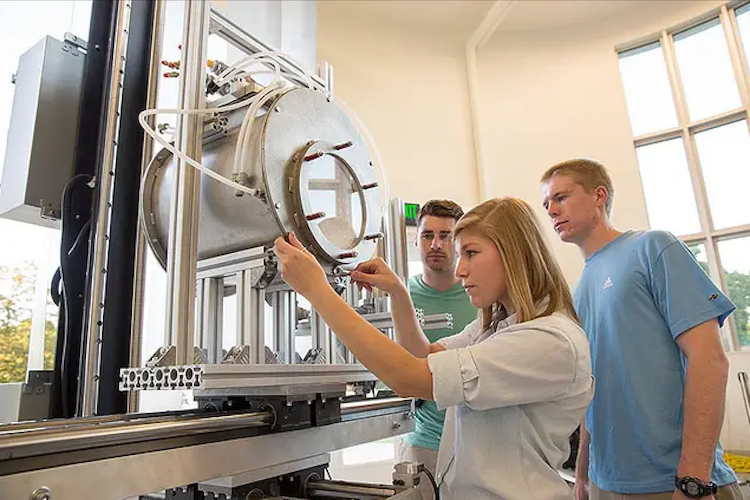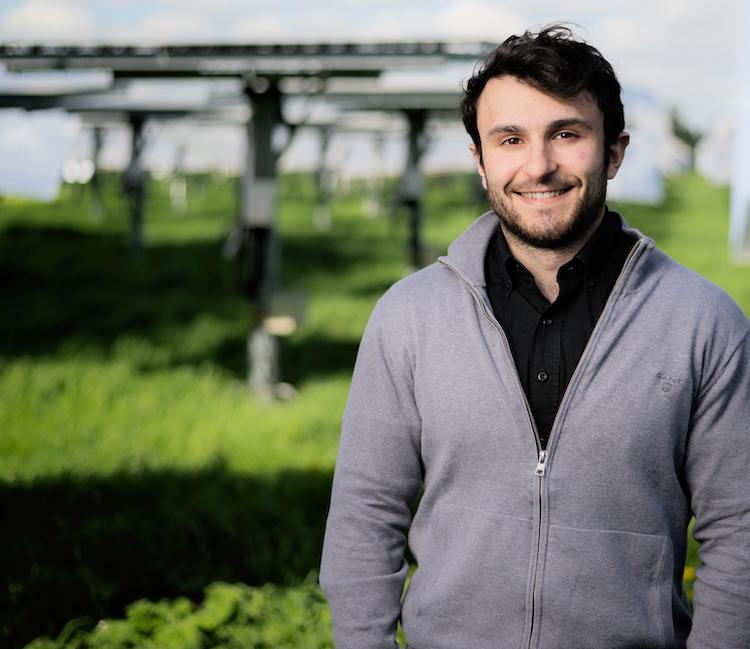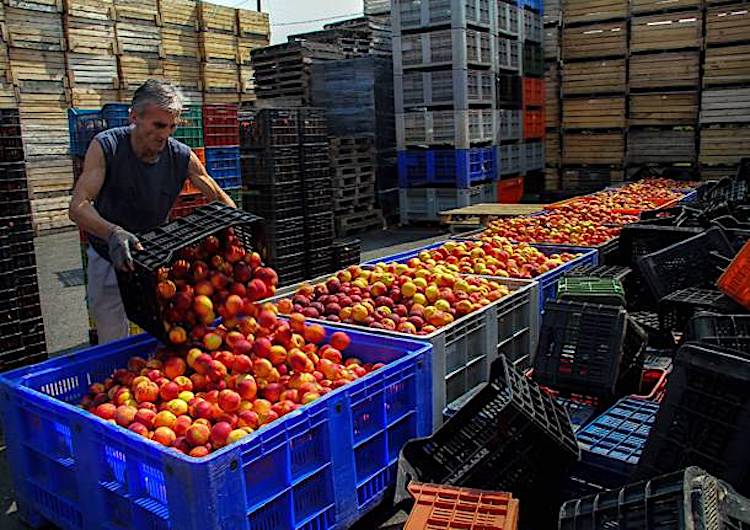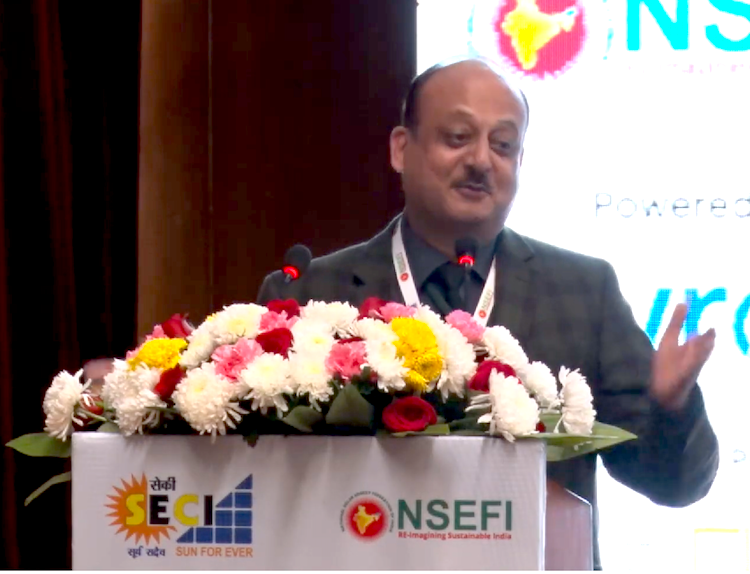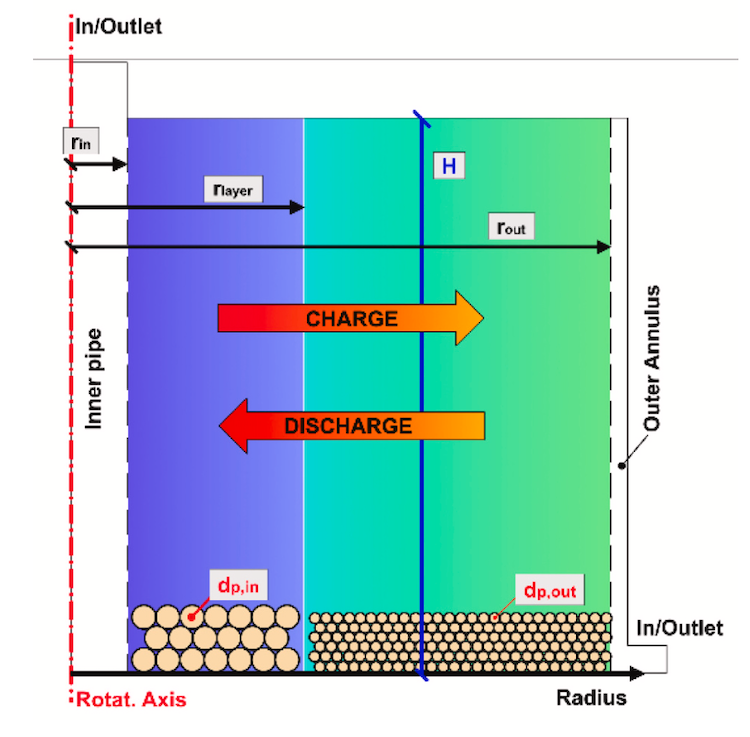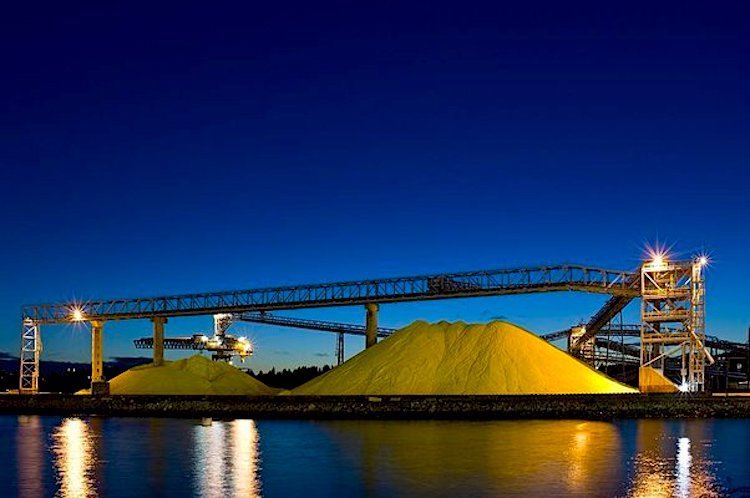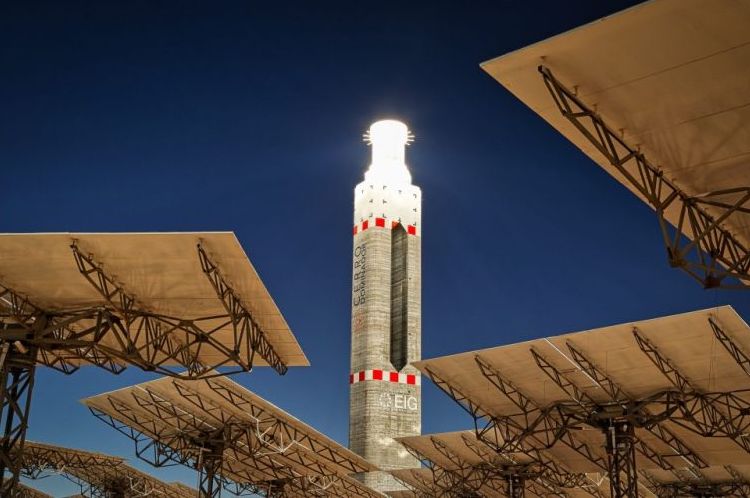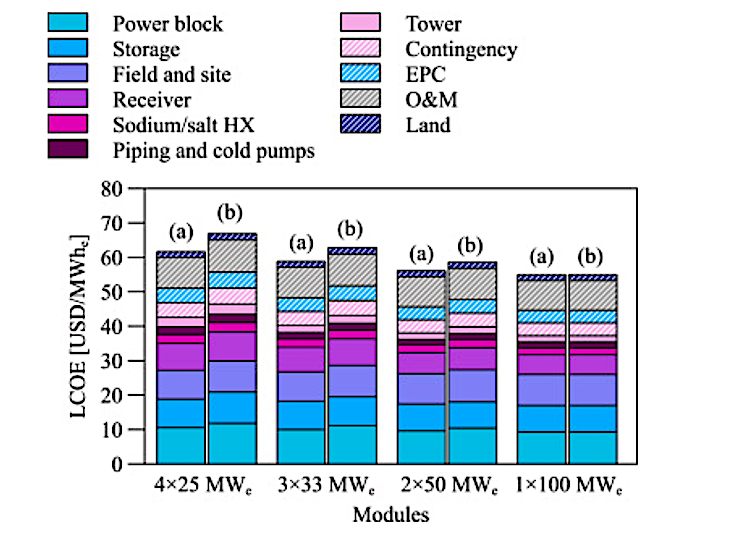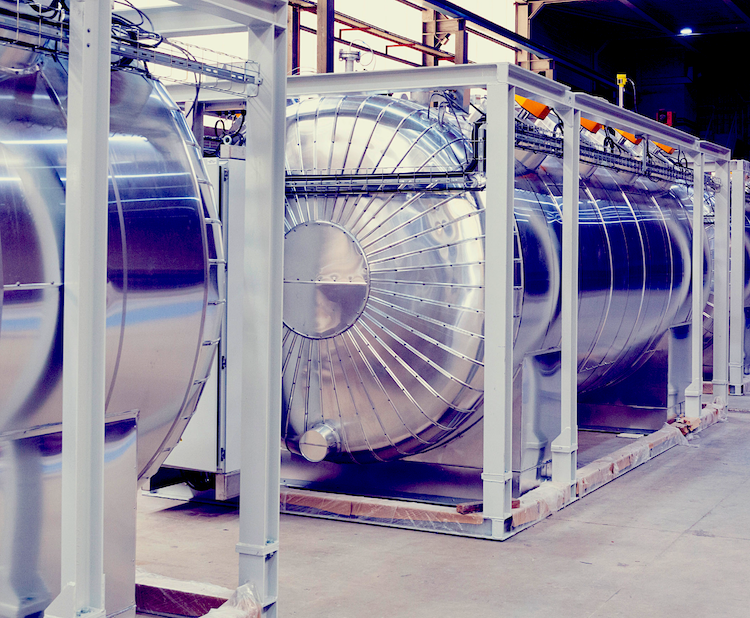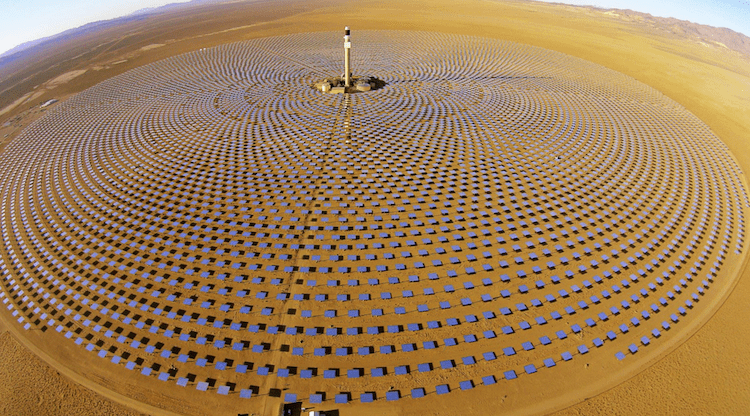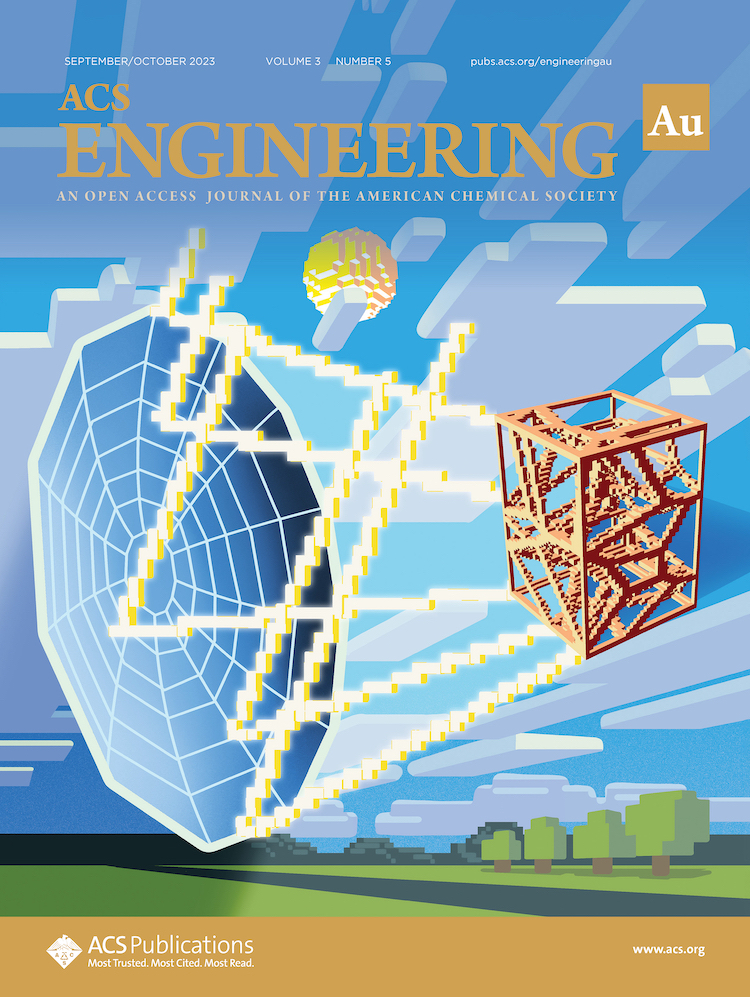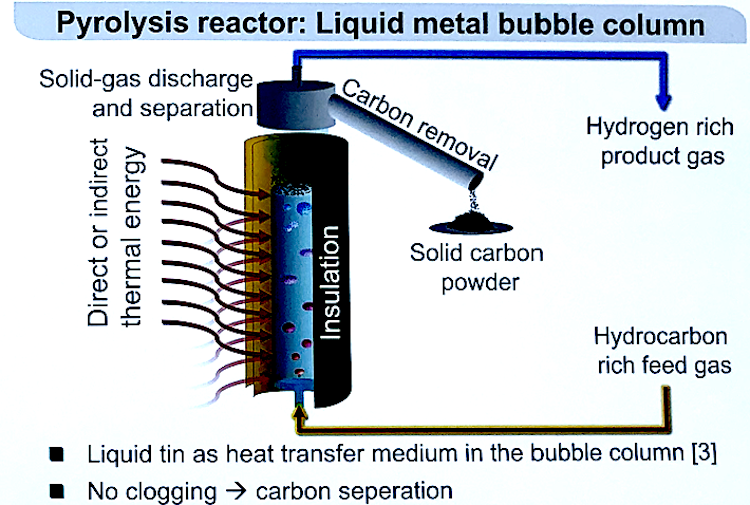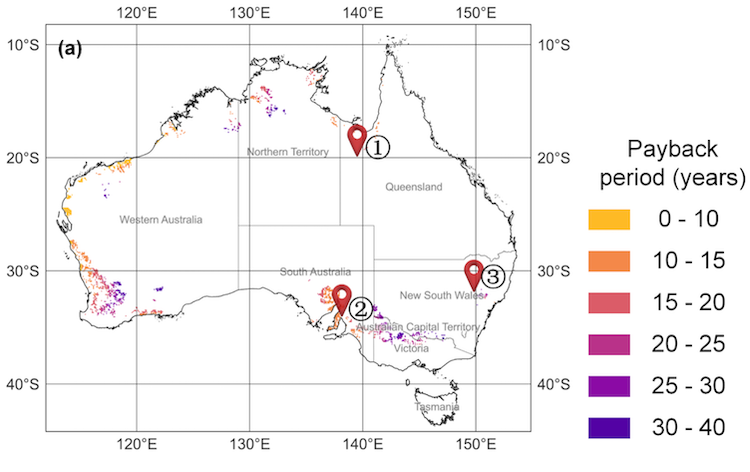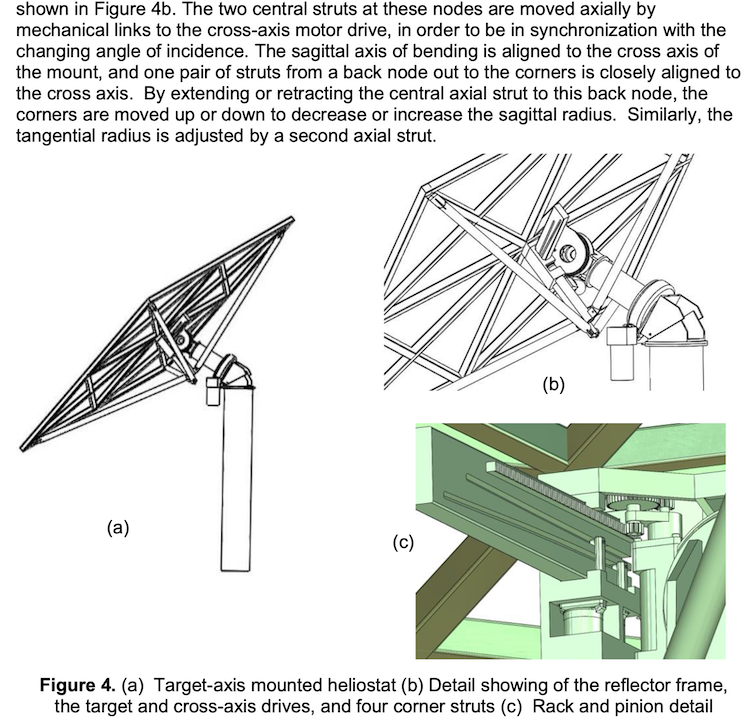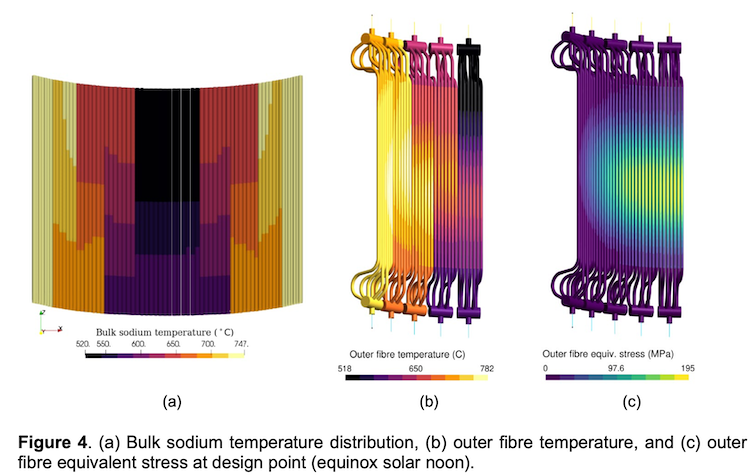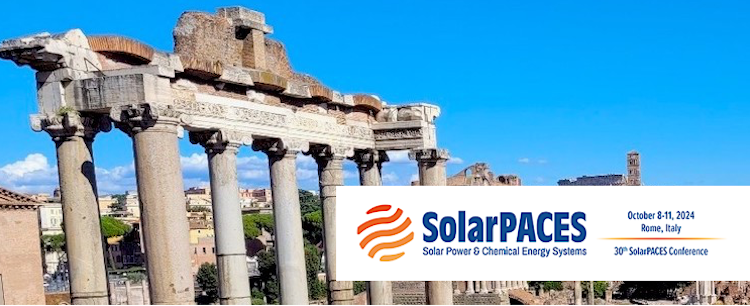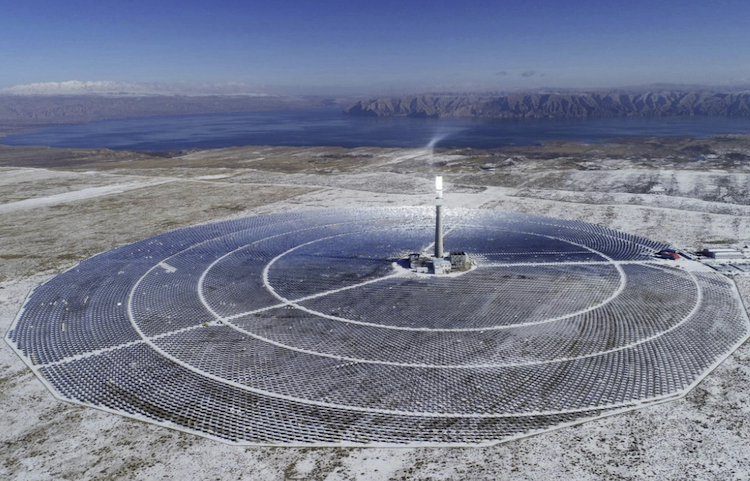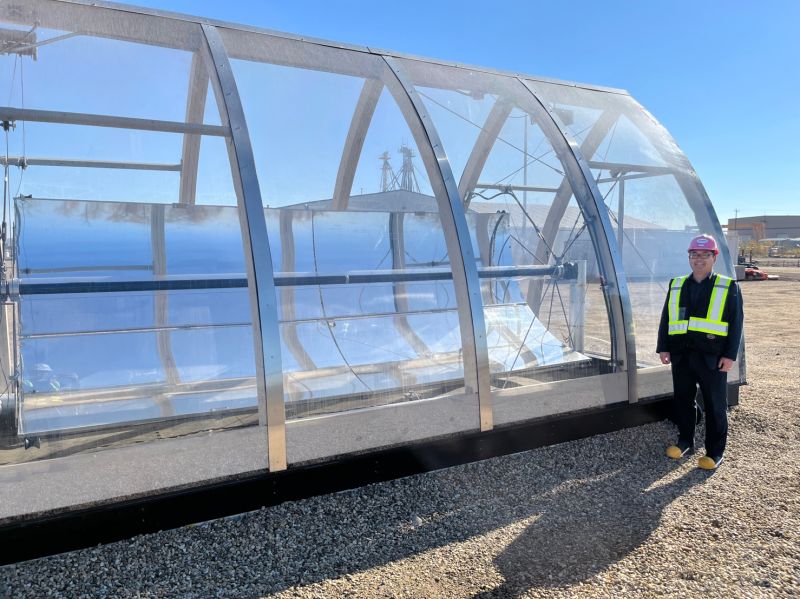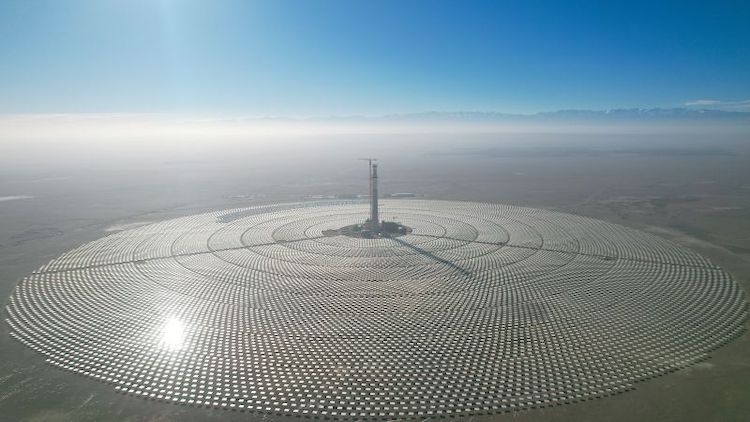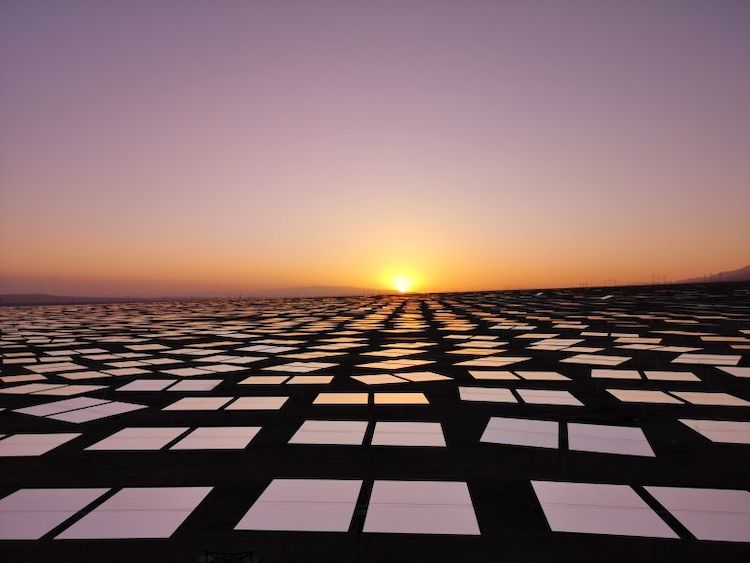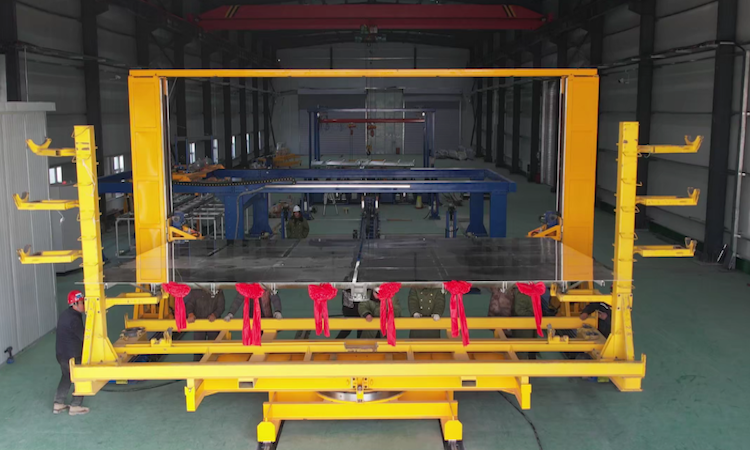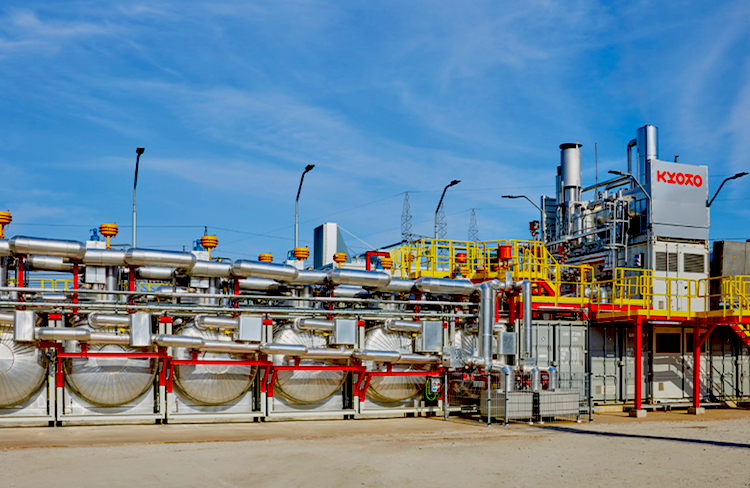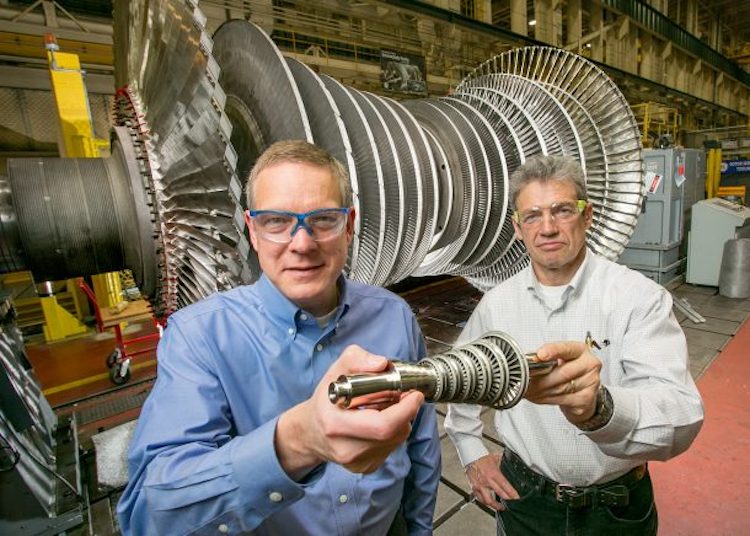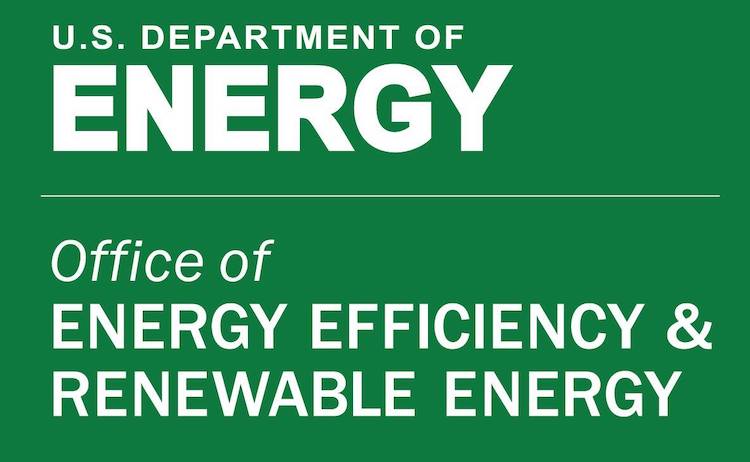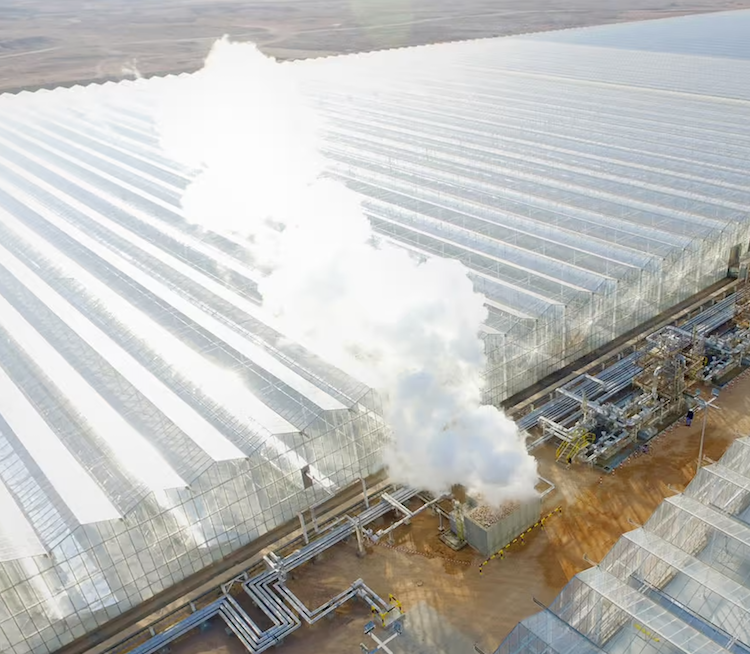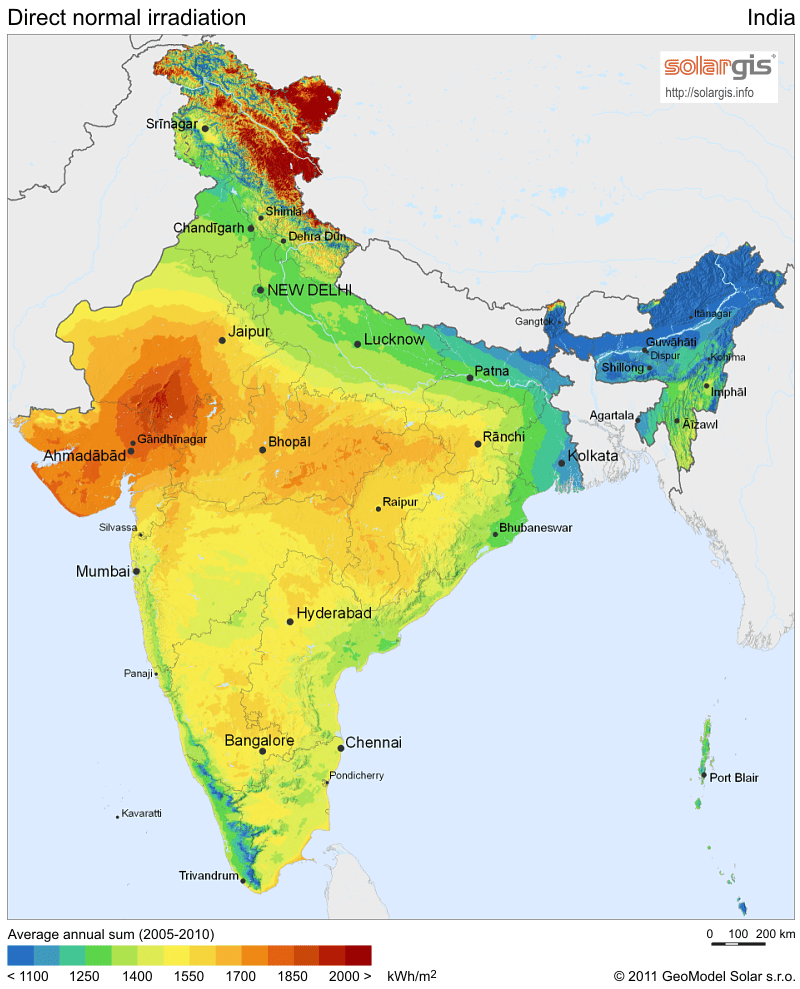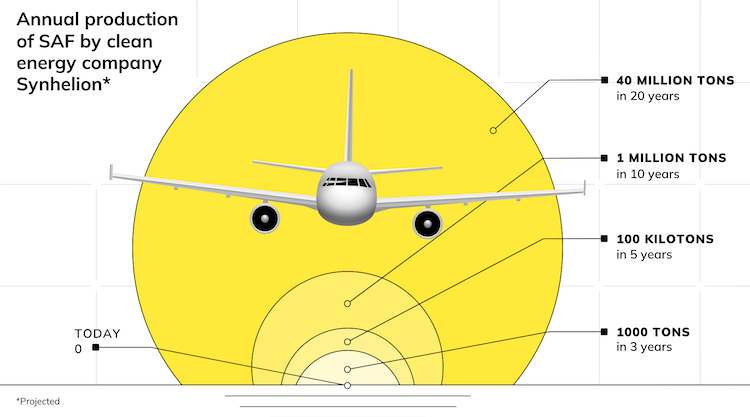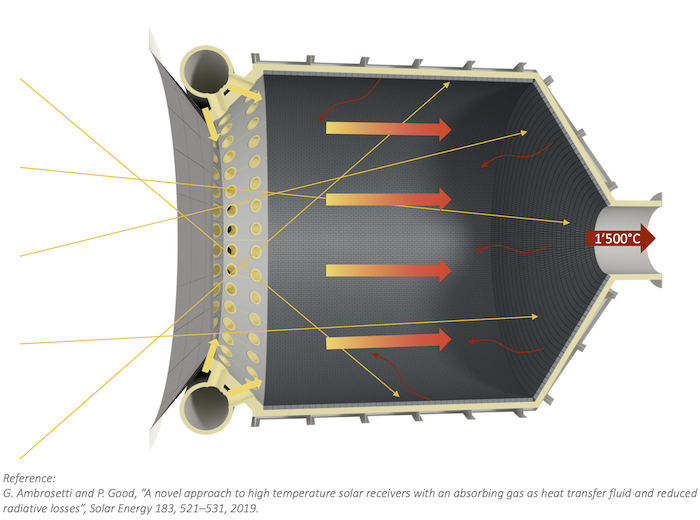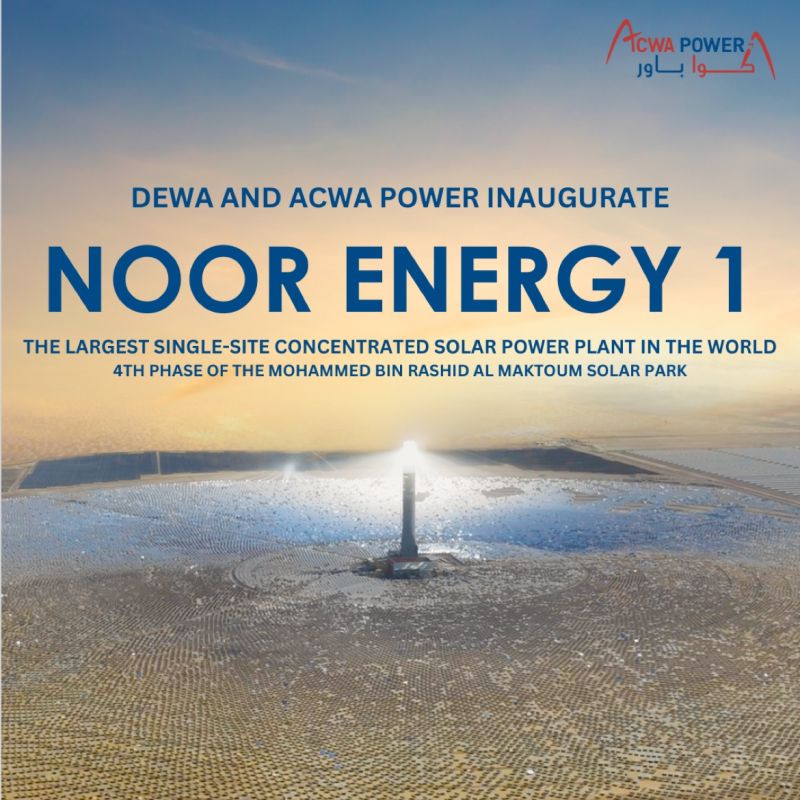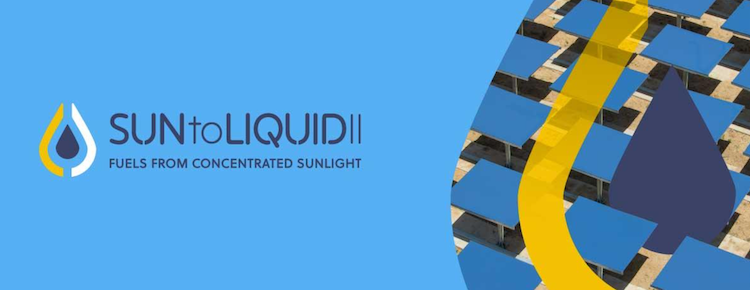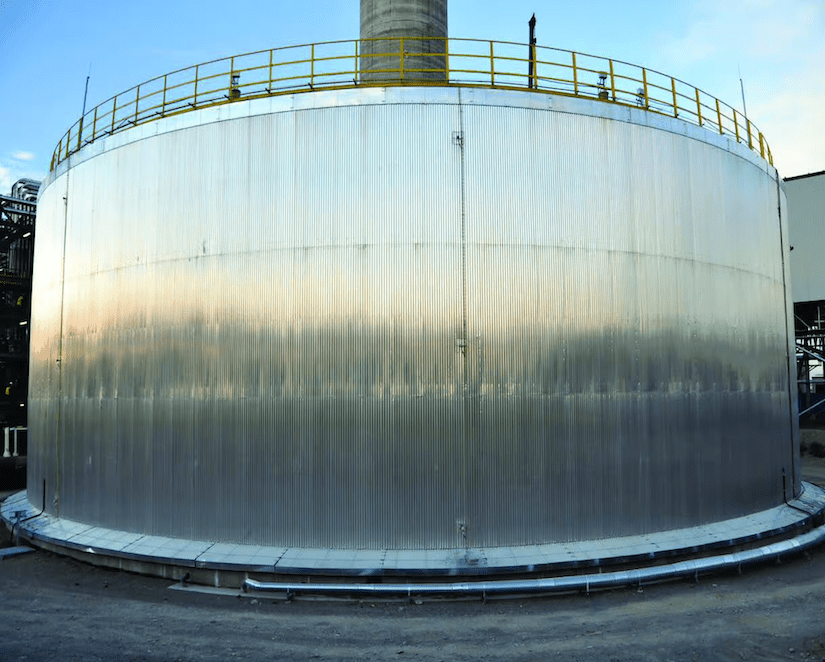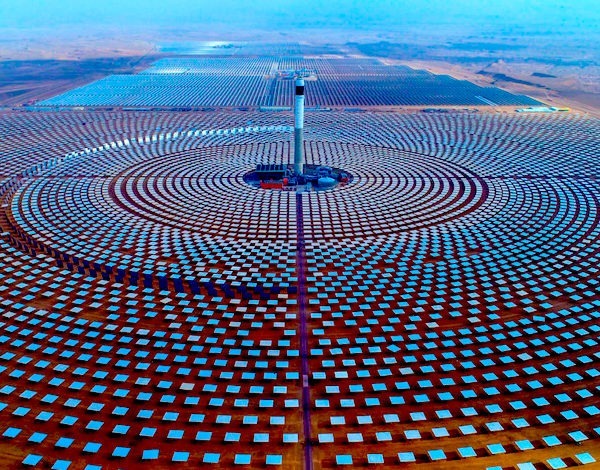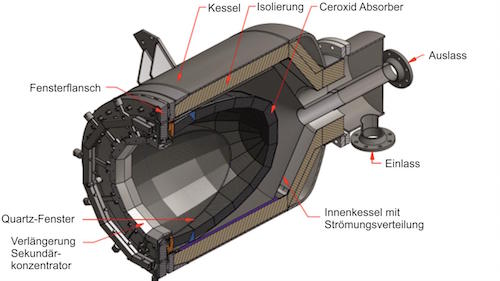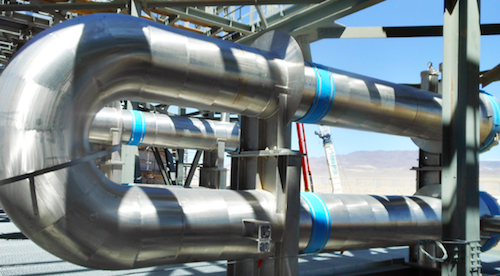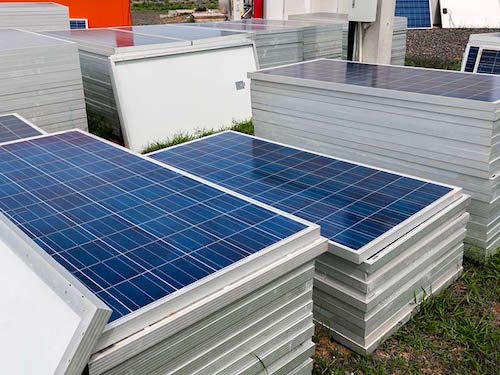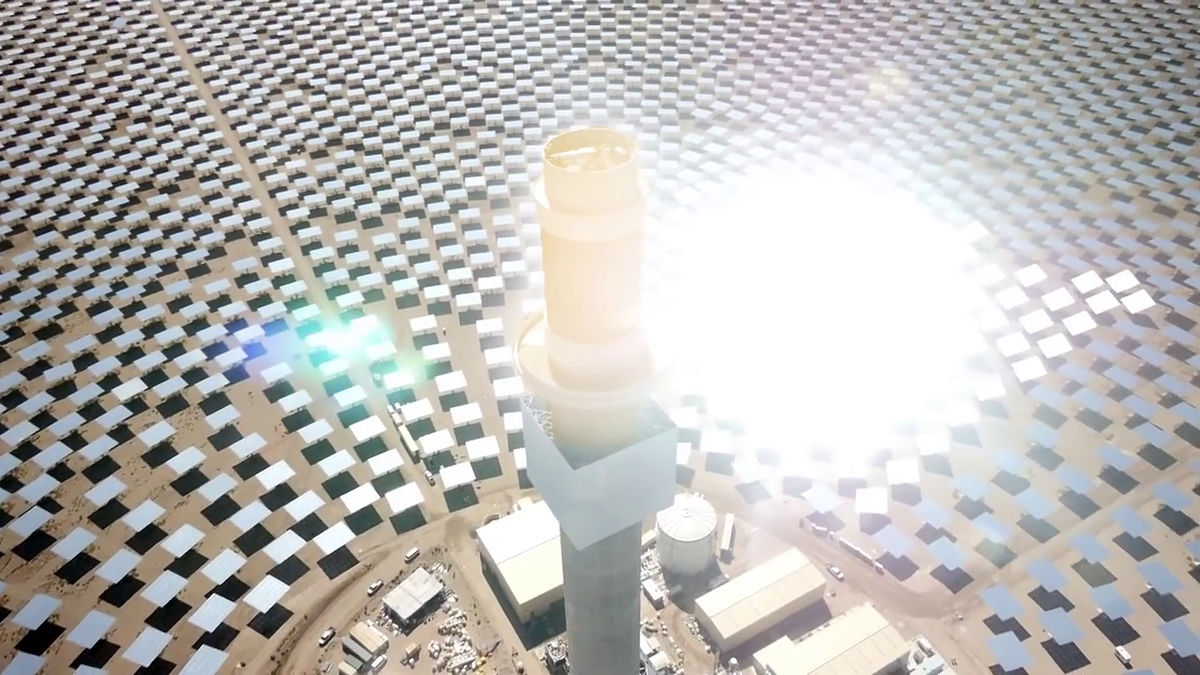
One of the three tower receivers at the 377 MW Ivanpah CSP project in California, surrounded by its heliostat field of mirrors IMAGE@BrightSource
On November 6, 2019, the U.S. Department of Energy announced $128 million in funding for 75 projects in this program. Thirteen of these projects will focus on CSP research and development.
Concentrating Solar Power Research and Development: $30 million for 13 research projects that enable CSP to provide power at any time and in any season, and that work to achieve the 2030 DOE cost target of $0.05 per kilowatt-hour (kWh) for CSP-generated electricity with at least 12 hours of thermal energy storage. This research includes new materials and technologies that significantly reduce the cost of manufacturing, enable new energy storage technologies, and develop solutions that enable a solar field to operate autonomously without any human input.
The Solar Energy Technologies Office Fiscal Year 2019 (SETO FY2019) funding program supports projects that will improve the affordability, reliability, and performance of solar technologies on the national grid. This program funds projects that advance early-stage concentrating solar-thermal power (CSP), photovoltaic, and systems integration technologies, and reduce the non-hardware costs associated with installing solar energy systems.
Approach
CSP research and development projects will work toward achieving a 50% cost reduction by 2030 and focus on advancing thermal energy storage to make solar available on demand, developing materials and solutions that lower the cost of manufacturing CSP components, and automating CSP collector fields that can operate without human input.
Objectives
Projects in this funding program will bolster innovation across the U.S and work toward the SETO 2030 cost targets. Technical projects will result in new technologies and solutions that can lower solar electricity costs for CSP.
Selectees
— Award and cost share amounts are subject to change pending negotiations —
Firm Thermal Energy Storage
ARIZONA STATE UNIVERSITY (1)
Project Name: Economic Weekly and Seasonal Thermochemical and Chemical Energy Storage for Advanced Power Cycles
Location: Tempe, AZ
DOE Award Amount: $3.3 million
Cost Share: $800,000
Project Summary: This project will seek to integrate multiple thermochemical energy storage components into a concentrating solar-thermal power (CSP) design so that a plant can have multiple storage durations, including daily and long-term. These components will be designed for integration with supercritical carbon dioxide power cycles. The team will conduct techno-economic analyses to improve CSP system design and operation for guaranteed year-round energy dispatchability.
MICHIGAN STATE UNIVERSITY
Project Name: Solid-State Solar Thermochemical Fuel for Long-Duration Storage
Location: East Lansing, MI
DOE Award Amount: $2 million
Cost Share: $500,000
Project Summary: Michigan State University and partners will develop a low-cost, zero-emission, solid-state fuel that enables energy storage for short or long periods. This environmentally sound fuel can be stored in a bin until it is used to provide low-cost solar energy storage. Since it can be readily scaled up to 100 megawatts, this novel fuel will aim to be economically competitive at long durations and large capacities.
NATIONAL RENEWABLE ENERGY LABORATORY (1)
Project Name: Environmental Design of Cost-Effective, High-Temperature, Sensible Thermal Energy Storage Using Industrial Byproducts
Location: Golden, CO
DOE Award Amount: $1.7 million
Cost Share: $400,000
Project Summary: This project will design a cost-effective structure for thermal energy storage (TES) tanks using composite concrete instead of metals to help achieve the TES cost target of $15 per kilowatt-hour thermal. The team will also improve the mechanical strength and thermal stability of the tanks’ internal insulation materials by creating a new composite ceramic material with cenospheres—small, lightweight, hollow balls of silica or alumina that are filled with gas—added to prevent salt from seeping in.
SUNVAPOR
Project Name: Low-Cost Buffer Storage for Solar Industrial Steam Applications
Location: Livermore, CA
DOE Award Amount: $2.5 million
Cost Share: $2.5 million
Project Summary: This project will show how using enormous tanks that normally store liquefied petroleum gas can be used to accumulate and store solar-generated steam—and use that steam for manufacturing processes. This technology should be cost-effective due to the low cost of pressurized water and the ability to operate at temperatures above 100° Celsius. In addition, the project team will size the tanks to achieve a low cost of solar thermal energy storage per gallon, and the solar steam will be able to be used in various industrial applications.
Materials and Manufacturing
BRAYTON ENERGY
Project Name: Creep and Fatigue Characterization of High-Strength Nickel Alloys Thin Sections in Advanced CO2 Heat Exchangers
Location: Hampton, NH
DOE Award Amount: $700,000
Cost Share: $200,000
Project Summary: Brayton Energy and Oak Ridge National Laboratory will examine creep behavior—the tendency to deform under mechanical stress—in thin-sheet nickel alloys 740H and 282, to see whether they can improve the lifetime of supercritical carbon dioxide (CO2) heat exchangers in high-temperature concentrating solar-thermal power plants. This will provide information about structural characteristics in metals used to build heat exchangers and determine how thick their components should be.
CERAMIC TUBULAR PRODUCTS
Project Name: High-Temperature Silicon Carbide Composite Receiver Assembly for Liquid Pathway Concentrating Solar Power Operating Above 700° Celsius
Location: Lynchburg, VA
DOE Award Amount: $1.9 million
Cost Share: $500,000
Project Summary: This project team will develop silicon carbide composite receiver tubes for molten chloride salt and liquid sodium receivers in concentrating solar-thermal power (CSP) plants. The tubes have thermomechanical properties and corrosion resistance that are superior to metal alloys at high temperatures. As a result, the lifetimes of these tubes could increase, enhancing CSP system performance.
ECHOGEN POWER SYSTEMS
Project Name: Advanced Compressors for CO2-Based Power Cycles and Energy Storage Systems
Location: Akron, OH
DOE Award Amount: $4.4 million
Cost Share: $1.1 million
Project Summary: This project will develop a large-scale, low-cost, single-shaft compressor for supercritical carbon dioxide (sCO2) power cycles and energy storage systems to improve the performance of concentrating solar-thermal power systems. Conventional systems have multiple shafts but lower mechanical efficiency and higher costs. The team will build and test a prototype at the University of Notre Dame’s test facility.
GENERAL ELECTRIC COMPANY, GE RESEARCH
Project Name: Near-Net-Shape Hot Isostatic Press Manufacturing Modality for sCO2 CSP Capital Cost Reduction
Location: Niskayuna, NY
DOE Award Amount: $2.5 million
Cost Share: $600,000
Project Summary: GE Research will fabricate advanced super critical carbon dioxide (sCO2) power cycle structures for CSP plants from metal powders by pressing these powders at high temperatures. This process is estimated to reduce the manufacturing cost of these components by at least half and lower equipment costs. This will enable a U.S.-based supply chain and strengthens the nation’s role in advanced manufacturing and high-efficiency power generation.
NATIONAL RENEWABLE ENERGY LABORATORY (2)
Project Name: Thermomechanical Behavior of Advanced Manufactured Parts, Subcomponents, and Their Weldments for Gen3 CSP
Location: Golden, CO
DOE Award Amount: $2 million
Cost Share: $500,000
Project Summary: This project will develop strategies to prevent corrosion on piping and other metal surfaces that would be in contact with molten chlorides in Generation 3 concentrating solar power (Gen3 CSP) systems. The team will explore advanced manufacturing techniques for components like heat exchangers as well as cladding for piping materials. This will extend the lifetime of CSP components and plants.
OAK RIDGE NATIONAL LABORATORY
Project Name: Vertically Aligned Carbon Nanotube Arrays as Novel, Self-Lubricating, High-Efficiency Brush Seal for CSP Turbomachinery
Location: Oak Ridge, TN
DOE Award Amount: $1.4 million
Cost Share: $400,000
Project Summary: In advanced turbines for concentrating solar-thermal power (CSP) plants that use supercritical carbon dioxide as a working fluid, metal brush seals prevent internal energy leakage, but this project will develop a new scalable seal brush on a flexible base that will improve the seal’s efficiency and durability. The seal will be made of a vertically aligned carbon nanotube array and use a chemical vapor deposition process without a catalyst. The project will aim to improve turbine efficiency and reduce the manufacturing cost by at least half.
PURDUE UNIVERSITY
Project Name: Oxidation-Resistant, Thermomechanically Robust Ceramic-Composite Heat Exchangers
Location: West Lafayette, IN
DOE Award Amount: $3.5 million
Cost Share: $900,000
Project Summary: This project team will develop cost-efficient ceramic-composite primary heat exchangers that are highly resistant to corrosion by supercritical carbon dioxide and molten salt and will not deform or fracture at temperatures as high as 800° Celsius. These heat exchangers will last longer than conventional ones and improve the efficiency and lifetime of concentrating solar-thermal power plants.
SANDIA NATIONAL LABORATORIES
Project Name: High-Temperature Freeze and Leak Resistant Advanced Salt Valve
Location: Albuquerque, NM
DOE Award Amount: $2 million
Cost Share: $500,000
Project Summary: This project team will develop a robust molten salt valve that can mitigate leaking and freezing in operating temperatures up to 750° Celsius in concentrating solar-thermal power plants. The design will use passive and active heat management strategies suitable to different valve types. This will ensure long-term valve operation at high temperatures, promote a 30-year system lifetime, and reduce operation and management burdens due to freezing and downtime.
Autonomous CSP Collector Field
ARIZONA STATE UNIVERSITY (2)
Project Name: Polarimetry-Enhanced Imaging towards Autonomous Solar Field and Receiver Inspections
Location: Tempe, AZ
DOE Award Amount: $2 million
Cost Share: $500,000
Project Summary: This project will develop imaging systems using polarimetry, which is the measurement of how light rays are aligned, or polarized. Measuring polarization has the potential to be much more sensitive than conventional optical measurements. The imaging systems will be small enough to attach to drones and be deployed to evaluate the performance of concentrating solar-thermal power (CSP) collector systems. They can also be attached to CSP plant power towers. Autonomous imaging will reveal damage and soiling on collector mirrors, and reduce errors in mirror alignment, resulting in improved efficiency.
Learn more about the SETO FY2019 funding program and the projects selected for the photovoltaics, systems integration, innovations in manufacturing: hardware incubator, and balance of systems soft cost reduction topics.
Learn more about the solar office’s other concentrating solar-thermal power awards.






